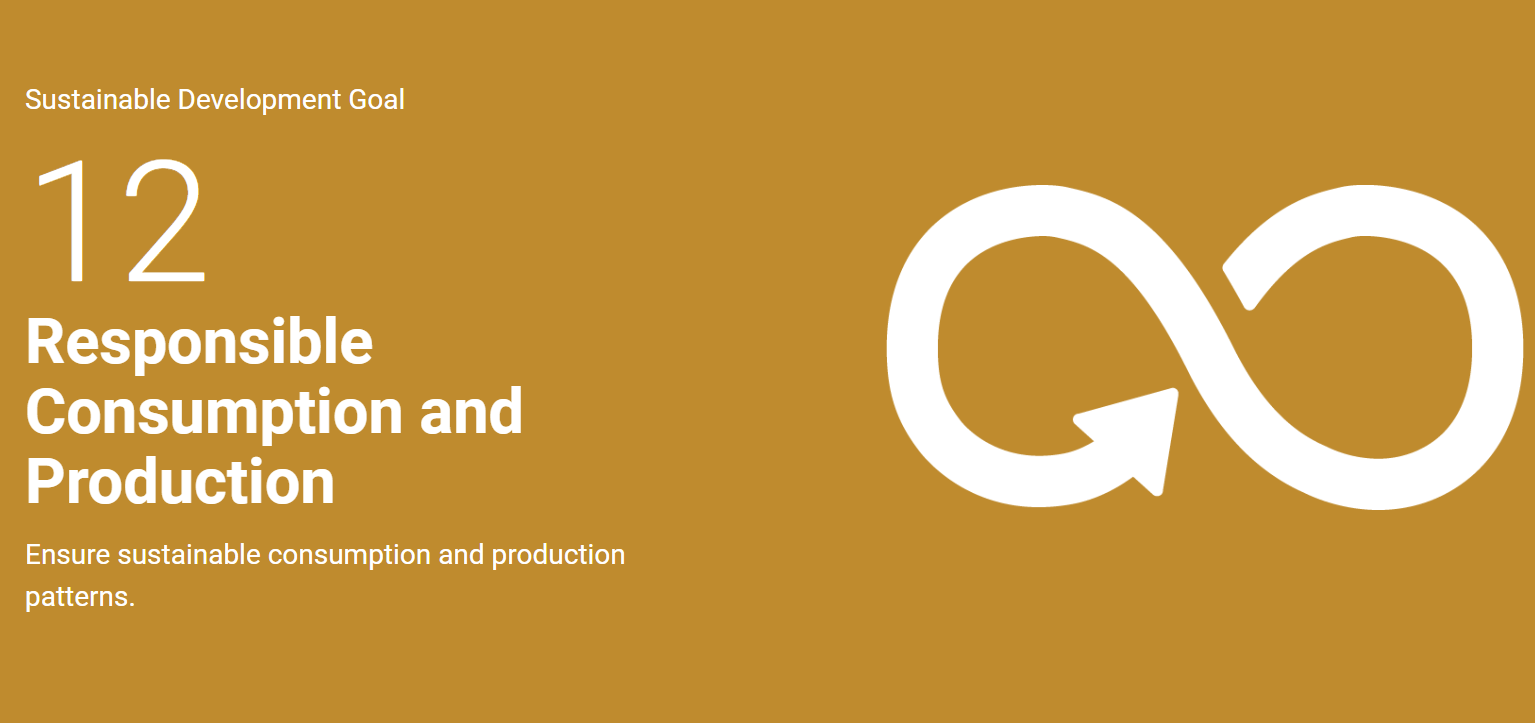
Campus Operations:
International Agriculture University (IAU) is deeply committed to SDG#12: Responsible Production & Consumption within its campus operations. In pursuit of this goal, IAU has implemented a comprehensive waste reduction and recycling program, significantly reducing its environmental footprint. All across the campus, there are dedicated recycling stations that encourage students, faculty, and staff to separate their waste into recyclables and non-recyclables. Moreover, IAU’s dining facilities have made strides in promoting sustainable consumption by sourcing locally-produced, seasonal food products, minimizing food waste, and engaging in partnerships with local farmers. In addition, IAU’s procurement policies prioritize eco-friendly and locally-sourced products, reducing the carbon footprint associated with the university’s purchases. These tangible actions underscore IAU’s dedication to fostering responsible production and consumption within the campus setting, setting a practical example for sustainability in higher education.
Research & Innovation:
The International Agriculture University (IAU) actively embraces SDG #12: Responsible Production & Consumption through innovative research initiatives. In its commitment to this goal, IAU has pioneered research programs that focus on resource-efficient agricultural practices, waste reduction, and sustainable supply chains. One notable project involves developing precision agriculture techniques that optimize resource use, significantly reducing water and chemical inputs while enhancing crop yields. Additionally, IAU has partnered with local farmers to implement a circular economy model, converting agricultural waste into bioenergy and biofertilizers, reducing waste in the production process and promoting responsible consumption. Such initiatives exemplify IAU’s dedication to fostering a culture of sustainability and responsible production in the agricultural sector through groundbreaking research and innovation.
Student Involvement:
International Agriculture University (IAU) demonstrates its dedication to UN Sustainable Development Goal #12: Responsible Production & Consumption through extensive student involvement initiatives. IAU encourages responsible consumption practices by organizing workshops and campaigns, such as “Reduce, Reuse, Recycle,” where students actively participate in waste reduction and responsible resource management. Furthermore, the university engages students in projects like the “Food Sustainability Challenge,” challenging them to create sustainable recipes using locally-sourced ingredients, thus promoting responsible production and consumption in the context of food. Students are encouraged to minimize waste through initiatives like “Clothing Swaps” and “Textbook Recycling,” which reduce the environmental impact of clothing and educational materials. IAU’s commitment to this goal extends to practical education, such as offering courses like ??, where students learn how to make informed and responsible choices in their personal and professional lives. These examples highlight IAU’s holistic approach to instilling a sense of responsibility in students towards sustainable production and consumption, aligning with SDG #12.
Partnerships & Collaborations:
International Agriculture University (IAU) is actively committed to the United Nations Sustainable Development Goal #12: Responsible Production & Consumption through its strategic partnerships and collaborations. By joining forces with various stakeholders, IAU actively promotes responsible production and consumption in multiple ways. For instance, IAU partners with local food suppliers, ensuring that all products procured for its cafeteria are sourced sustainably and in compliance with fair trade practices. Furthermore, the university collaborates with international organizations to establish joint initiatives that tackle food waste reduction, exemplified by its participation in a global campaign to minimize food loss and promote sustainable agriculture. IAU also works closely with industry leaders to implement eco-friendly packaging solutions and hosts regular workshops for the business community on adopting circular economy principles. These tangible efforts underline IAU’s dedication to promoting responsible production and consumption while fostering valuable partnerships to make a substantial impact on SDG #12.